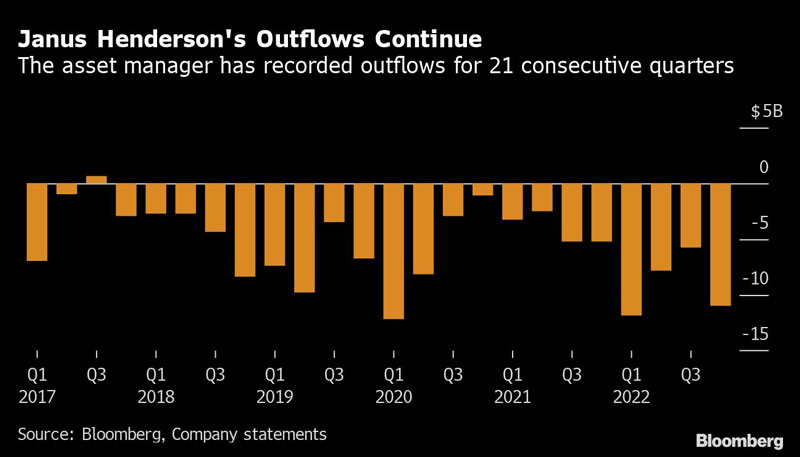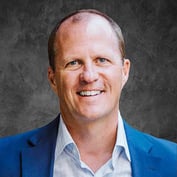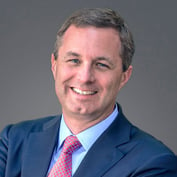What You Need to Know
- Janus' new CEO says the current environment favors active stock picking.
- He aims to achieve more consistent inflows in 3 to 5 years.
- Janus is investing in its liquid-alternatives unit.
Janus Henderson Group Plc’s new boss has a plan to revive the struggling money manager, whose clients have yanked about $130 billion since 2017. He’s leaning into active investing and pushing forcefully into alternative investments such as hedge funds and private credit.
In his first interview since taking over as chief executive officer in June, Ali Dibadj, 47, acknowledged the difficulties the London-based firm has faced and laid out the core of his turnaround strategy — devised after months of internal review by senior staffers.
Created in 2017 after the transatlantic merger of two storied asset managers, Janus Henderson aspired to build a large-scale fund manager able to fight the rapid shift to cheaper passive products. Instead, its assets under management shrank to $287 billion from $331 billion in 2017, and its clients have pulled money for the past 21 quarters.

Dibadj aims to stanch the bleeding by pushing into some of the most highly competitive areas of finance, a move he concedes will take time.
“We have a lot to do with our active business right now to deliver better results,” Dibadj told Bloomberg News, speaking from the firm’s new office in New York, where he was meeting with investors. He expects to show some positive quarters over the next couple of years, with the goal of having more consistent inflows over the next three to five years.
Dibadj — former chief financial officer at AllianceBernstein Holding LP — took over almost two years after activist investor Nelson Peltz’s Trian Fund Management built a stake in the firm that now stands at 19% and began pushing for change. Janus Henderson’s board selected the new CEO, a choice the activist investor said it “strongly supports.”
Active Bet
Dibadj, who splits his time between the firm’s London headquarters and its Denver base, launched his turnaround plan soon after taking the top job. In his first few months, he planned roughly $40 million in cost cuts, shook up senior management, announced plans to expand in Asia and South America and hired a team for investing in emerging market debt.
There’s more to come, he said.
Behind the scenes, a committee of 40 senior staff members met for months to understand what clients want from Janus Henderson and plot the revival strategy. At root, the plan bets that active management, which has lost ground to low-cost passive index funds for more than a decade, still has a bright future at the heart of investment portfolios.
BlackRock Inc., Vanguard Group and State Street Corp.’s asset management arm rode the wave of index-investing, and now oversee about $20 trillion combined. But Dibadj has no plans to build a major passive business, suggesting the current environment favors stock-picking.
“Pure indexing as a passive, the classic passive, to me is going to be much more difficult to deliver the best returns for our clients,” he said. “Picking haves and have-not companies — that divergence in performance is actually going to be much more important.”
At the height of the dot-com bubble, Janus Capital Group had a reputation for wagering on high-growth tech companies and beating competitors. Its successor, Janus Henderson, has an established presence in growth, tech and fixed-income funds. New areas Dibadj aspires to enter include large-cap value and municipal-bond fund offerings. The firm also plans to cultivate small funds that perform better than much larger rivals.








 February 23, 2023 at 03:37 PM
February 23, 2023 at 03:37 PM











 Copyright © 2024 ALM Global, LLC. All Rights Reserved.
Copyright © 2024 ALM Global, LLC. All Rights Reserved.